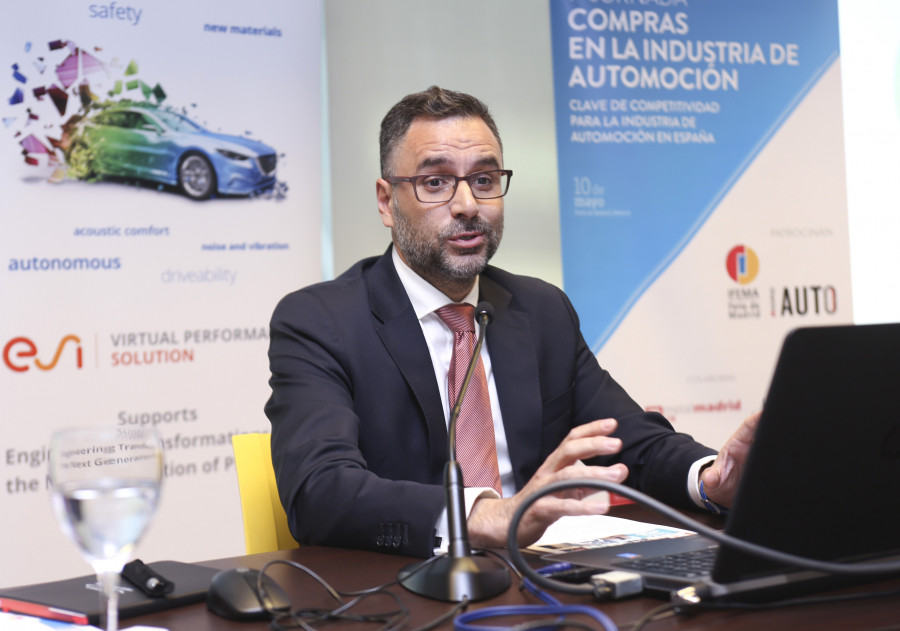“There is no localization strategy completely free of risks”

AutoRevista.- How can you describe Coronavirus impact in the Purchasing activities of an OEM?
Juan Carlos González.- As in all of the disruptive events of the last years, Coronavirus has had an important impact on the Supply Chain of the OEMs. Since January when the Wuhan region was lockdown, the Supply Chain for components coming from this area started to be stressed. As the pandemic has being extending in other regions, Purchasing areas have had to overcome obstacles to continue supplying facilities that remain open. Moreover, the return to work of our facilities has meant a big challenge on ensuring availability of all required components regardless of their origin.
AR.- Has this situation led to lack components availability from certain regions forcing to rethink the localization of certain components?
J.C.G.- This crisis is creating a series of supply challenges that vary in time and area by area. There is no localization strategy completely free of risks. Therefore, our mission is always to be in close contact with our suppliers and work as Commercial Partners facing the challenges of each situation together, with transparency and proposing solutions that help to mitigate the identified problem. In this sense, we have been able to react quickly and effectively to the challenges that have been arising thanks to the high degree of commitment of our Commercial Partners.
“The return to work of our facilities has meant a big challenge on ensuring availability of all required components”
AR.- How do you work with your suppliers in inventory management and alternative routes to minimize the effects and resume the operations? How do you work together in the application of health and safety protocols?
On April 15th ACEA (European Automobile Manufacturers Association) and CLEPA (European Association of Automotive Suppliers) released and agreed code of business conduct in view of COVID-19. This code emphasizes the commitment of working together according to the competency laws to mitigate the effects and reactivate the industry. Moreover, it was mentioned as a top priority to preserve health and safety of our employees and citizens. It also promotes sharing the health and safety protocols and practices with our supply chain partners. Specifically, the Ford health and safety protocol for operations’ resumption has been shared with our supply base.
AR.- Can a situation of this magnitude require other types of monitoring and visibility of the supply chain?
J.C.G.- We already have a high degree of visibility of our supply chain in all relevant aspects of the business. The continuous improvement of these systems never stops due to the changing environment we live at, making us learn something new every year. The current situation brings us additional conclusions on areas of improvement that together with the current available technology and the high degree of coordination with our Commercial Partners we can have more reliable information up to the minute.
Read the complete information in the next issue of AutoRevista nª 2.350

A requerimiento de AutoRevista sobre la imposición de aranceles del 30% a vehículos y componentes de la Unión Europea por parte de la Administración Trump, desde CLEPA señalan que "instamos encarecidamente a la UE a que impulse una exención para las piezas de automóviles en cualquier acuerdo.

La Asociación Española de Renting de Vehículos acaba de presentar su informe anual, y con él cifras más que optimistas para el segmento. Tanto es así que el parque de vehículos en renting ha crecido el 6,11% durante el primer semestre de este 2025 (una cifra levemente superior a la prevista por la asociación, el 6%), lo que implica que este asciende a 984.354 unidades totales.

Nissan ha construido un nuevo centro de reacondicionamiento de vehículos en la Planta de Nissan Ávila, diseñado para ofrecer a los clientes la experiencia de reestrenar un coche, gracias a un proceso altamente especializado y con los estándares de calidad Nissan.

PowerCo Battery Spain (PowerCo) y el ITE (Centro Tecnológico de la Energía) han establecido un acuerdo de colaboración con el objetivo de incrementar las capacidades formativas sobre esta industria pionera en España.

La filial española de Dacia ha designado a un nuevo Comité de Dirección con el propósito de continuar creciendo en 2025, después de lograr los mejores resultados de su historia en el primer semestre del año con un 9,6% de la cuota del mercado a particulares.
